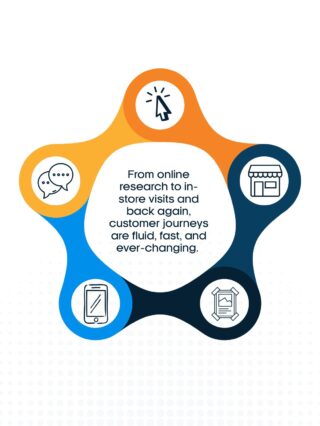Did you hear the latest news about Google? A federal judge ruled on August 5th that Google illegally maintains a monopoly in both internet search and paid search advertising.
Why this matters: While the focus of this story in the news has largely centered around Google paying roughly $26 billion dollars annually to be the default search engine on devices and apps with tech giants such as Apple, the case also focused on Google’s advertising practices.
Key findings include:
- Google altering search results to keep search users in their search engine, resulting in a greater chance of additional monetization (think snippets and AI results meant to answer your query in the search results rather than point you to websites, reducing ad revenue for said sites)
- It proved advertiser dependency on Paid Search advertising, citing instances of Fortune 25 companies seeing immediate impacts on revenue when throttling search investment down
- Advertisers pointed out that they cannot invest much more than 10% of their search budget outside of Google, due to scale/reach
- Google disclosed having “tuning mechanisms” and “pricing knobs” to affect the cost-per-click (CPC) outside of the auction/bidding format
- This includes minimum prices for ads in certain categories and artificial increases in “runner-up” bids to drive up costs
- Advertisers see higher costs when using additional ad assets such as sitelinks, images, and logos
- Google, in-stealth, would raise click prices to make up for perceived deficits in ad revenue growth, dialing in to hit their goal of 20% growth annually
- Google was found to have depreciated the quality of text ads by reducing the amount of data visible in Search Query Reports (SQRs), and by over-loosening keyword match types to increase scale
- This visibility shifted in 2020, so advertisers were now paying for clicks on queries they cannot see, with less adherence to the biddable keywords
- This also hindered the ability to add negative keywords to prevent irrelevant searches from using budget
- Looser keyword matching leads to more advertisers in each auction, which creates upwards pricing pressure
- Google seemingly stalled on incorporating Microsoft Ads auction-time-bidding into their advanced buying software, SA360
- In the instance of advertisers buying ads on multiple search engines through this tool, this gave an unfair advantage to Google Ads campaigns over Microsoft Ads campaigns when being run in tandem
What’s next? There is still a lot of unknown, as there is still a second phase of the trial and future proceedings that need to play out. Remedies to fix the monopolistic nature of Google’s search business may need to take place in some form. Speculation ranges from Google being forced to sell off portions of its search operations, to being required to end the massive paid contracts it holds with companies like Apple and Samsung to be the default search partner. As expected, Google has announced they will appeal this decision. Additionally, there is a second major antitrust suit building against Google that accuses them of abusing dominance in digital advertising and violating the Sherman Antitrust Act.
How does this affect my brand and our advertising? This decision can go in many directions, but it seems likely that that Google will lose a portion of its strong hold on search. With search use continuously climbing, this creates significant opportunity for other search engines and AI solutions such as Microsoft Bing, Perplexity and OpenAI. There is a strong belief that Apple may develop their own search functionality and OpenAI has already committed to their own, opening beta testing for SearchGPT just before this ruling. There is no shortage of human curiosity and search traffic, it will now just be taking place across more sites and apps, outside of Google.
Whatever the future holds, Butler/Till will continue to remain at the forefront of this update and its implications to Paid Search. If you have any questions on this topic, we would be happy to connect.
Contributors: Geoff Schopp




